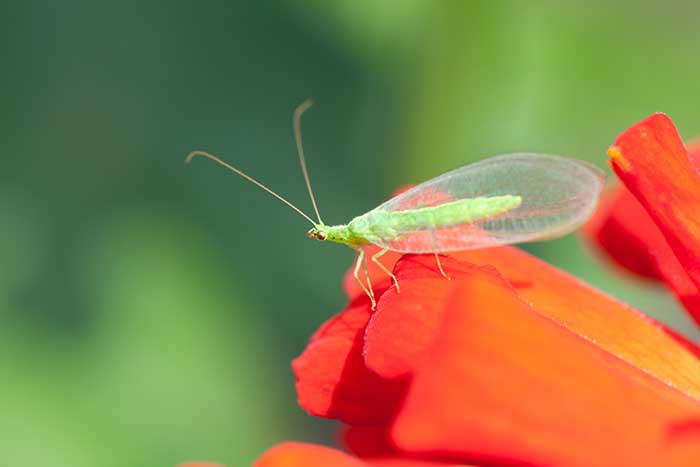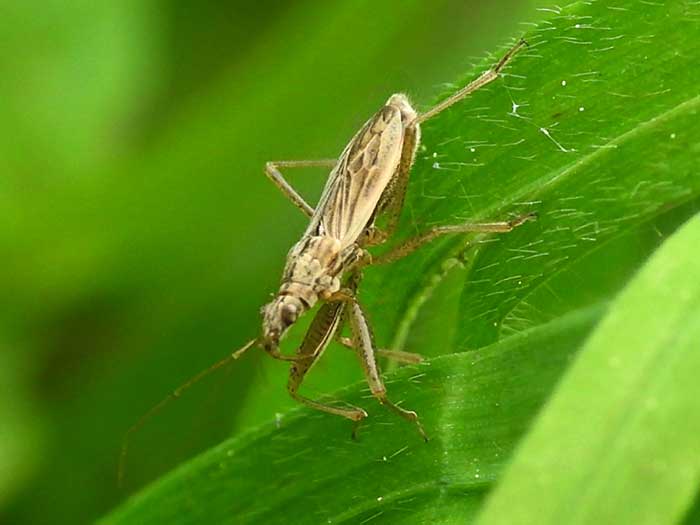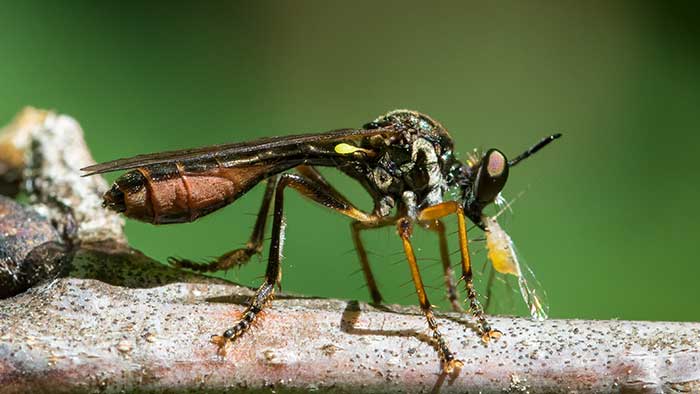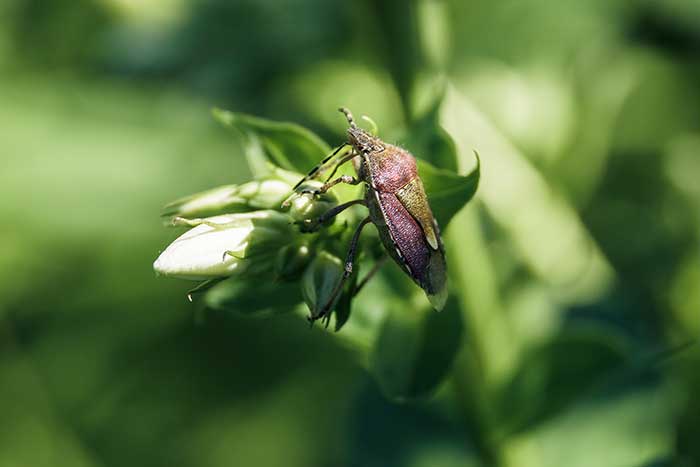Aphids are incredibly destructive plant pests and the bugbear of gardeners and crop growers worldwide. They are transmitters of plant disease and destroy their host plants. After infestation, the plant will show stunted growth, deformation, low yields, and sometimes even death.
It’s essential to act fast once you have identified an aphid infestation. While insecticide solutions can effectively control aphid infestations, many choose to opt for a more natural solution. Natural aphid predators are an ideal choice. While you can buy some from garden stores, others are naturally occurring and may require steps to encourage them into your green space.
Ladybugs

One of the most commonly know aphid predators is ladybugs, lady beetles, or ladybird beetles. These range in color and can be red with black dots, orange, or bright yellow. They are visually beautiful, with a large blackhead and white patches around the eye area. They are very noticeable and easy to spot due to their appearance.
Both adult ladybugs and larval feed on aphids. The adults lay their eggs on plants infested with aphid colonies. Ladybug larvae feed on aphids around them soon after hatching. Ladybugs live for around a year and eat over 5,000 aphids and other insects during this time.
Ladybugs can be very effective at controlling aphid infestations, but many are required, possibly thousands. You can buy ladybugs at garden stores. Be careful to release them at night as they tend to fly away in the day. A severe aphid infestation may take multiple applications of ladybugs to resolve.
Soldier Beetles

Soldier beetles, or leatherwings, are a generalist aphid predator like ladybugs. They feed on a wide range of prey, including aphids. Soldier beetles have elongated bodies that are orange-red or mustard-colored and covered in black patches. Because of this, they are easy to spot.
Only adult soldier beetles feed on aphids. They are not available commercially, so they are less frequently used to control aphid infestations than other predators like the ladybug. Regardless, they are effective predators when they come about naturally.
You can attract soldier beetles by growing various pollen-producing plants, which is another food source for them. They like weeds such as milkweed, wild lettuce, and goldenrod, as well as catnip and hydrangea. Maintaining some permanent plants where the soil is not disturbed will protect the larvae allowing them to pupate.
Brown or Green Lacewings

Brown or green lacewings are a commonly used predator for aphid control. Much like ladybugs, both adult and larval lacewings feed on aphids. However, in the case of lacewings, it is the larvae that are the more consistent aphid predator. Adult lacewings prefer nectar, pollen, and honeydew but lay their eggs near aphid colonies.
You can buy brown and green lacewings in garden stores. Larger than ladybugs, lacewings are best shipped as larvae, although you can also buy them as eggs or adults. Larvae provide a quicker pest control solution and are more likely to survive.
Damsel Bugs

Damsel bugs are similar to soldier beetles because they are common aphid predators but not available to buy commercially. They are useful when naturally occurring, and their typical habitat is in orchards, gardens, and many green spaces.
Damsel bugs have a soft and slender grayish body and a narrow head. They have antennae, a long mouth like a needle, and bulging eyes. Furthermore, both adult and nymph forms of damsel bugs feed on aphids. They use their distinctive, needle-like mouth to pierce the aphid and suck it dry.
Damsel bugs eat other insects to attract them to your garden; choose a wide variety of plants that, themselves, attract many different kinds of insects that feed on them. Fennel, caraway, goldenrod, marigold, and spearmint are excellent choices. To provide shelter, incorporate grasses, low shrubs, and ground covers.
Parasitic Wasp

Parasitic wasps are considered specialist parasitoids. Specialist parasitoids target a specific prey organism to lay their eggs inside, rather than directly killing them for food. Several types of parasitic wasp specialize in aphids.
Once a female parasitic wasp has laid her eggs inside the aphid, the larvae grow inside its body. Once fully formed, the adult wasp emerges from the aphid’s body at the rear and kills its host in the process.
Parasitic wasps are available to buy, but some species naturally occur in abundance. Buying them will not be effective unless you have, first, created an encouraging environment. Parasitic wasps are naturally attracted to gardens that have a supply of the pollen and nectar they need. They feed on the nectar of many flowering shrubs and trees and like cilantro, dill, fennel, and Queen Anne’s lace.
Parasitic wasps are very effective at killing aphids and can play an essential role in controlling other unwanted insects.
Minute Pirate Bugs

Minute pirate bugs are also known as flower bugs and can be bought commercially from garden stores to control aphid infestations.
Minute pirate bugs are tiny and can be challenging to see without a magnifying lens. Adult minute pirate bugs are black and white and have an X pattern on their back. However, their nymphs are tiny and are red or orange. These bugs reproduce quickly and have a life cycle of just 3-4 weeks. The adults lay their eggs in plant tissue.
They are incredibly effective at handling severe aphid infestations quickly due to their reproductive cycle. They move efficiently through infested plants, killing aphids whether they need to feed or not. Attract them by providing nectar-rich plants, including marigold, caraway, spearmint, and fennel. They will establish well once settled but be careful not to deter them by using insecticides.
Besides the mentioned species, there is a range of other animals that feed on aphids. Among them are some birds, aphid wasps, midges, spiders, big-eyed bugs, and various flies. Whether you choose to buy them commercially or attract them naturally, natural predators can be a very effective biological control method for aphids.


















